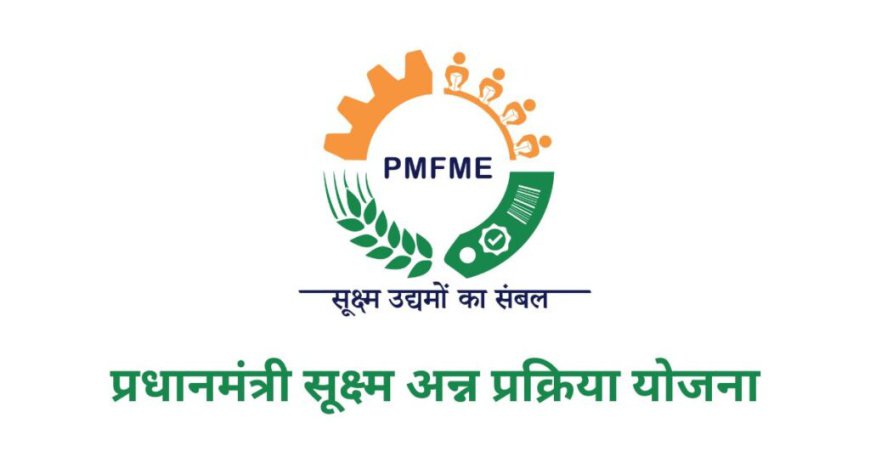7 Key Features of the PMFME Scheme You Should Know
This scheme seeks to formalize the sector, enhance competitiveness, and drive entrepreneurial growth across India.

The PMFME Scheme (Prime Minister’s Formalization of Micro Food Processing Enterprises) is a flagship initiative by the Government of India aimed at boosting micro food processing enterprises (MFPEs) in the unorganized sector. This scheme seeks to formalize the sector, enhance competitiveness, and drive entrepreneurial growth across India.
What is the PMFME Scheme?
The PMFME Scheme is a part of the "Aatmanirbhar Bharat Abhiyan" and is designed to support the unorganized micro food processing units that contribute significantly to India’s food industry. By offering financial, technical, and capacity-building support, the scheme aims to improve the overall productivity of MFPEs and promote formalization in the sector.
Key Features of the PMFME Scheme
Here are the seven key features of the PMFME scheme that every entrepreneur in the food processing industry should be aware of:
1. Financial Support Through PMFME Loan
The PMFME loan provides financial assistance to individual micro food processing units. Under this scheme, entrepreneurs can avail of credit-linked subsidies with a 35% subsidy of the eligible project cost, up to a maximum of ₹10 lakh. This is especially helpful for businesses looking to expand their operations.
2. One District One Product (ODOP) Approach
The PMFME scheme promotes the One District One Product (ODOP) approach. This initiative focuses on developing a product specific to each district, improving its quality and marketability. ODOP aims to build a strong brand identity for district-specific food products, boosting local employment and revenue generation.
3. Capacity Building and Training
The PMFME scheme places a strong emphasis on capacity building through training programs. Micro-entrepreneurs are provided with training to improve their business management, production, and marketing skills. This helps in enhancing the technical capabilities of small enterprises.
4. Support for SHGs and Cooperatives
Under the PMFME scheme, Self-Help Groups (SHGs), Farmer Producer Organizations (FPOs), and cooperatives can access funding for common processing facilities, packaging, and branding activities. This collaborative approach strengthens the ecosystem for micro food processors and promotes entrepreneurship at the grassroots level.
5. Marketing and Branding Support
The scheme provides marketing and branding support to micro-enterprises. Assistance is provided for developing attractive packaging, product branding, and connecting these enterprises with e-commerce platforms and modern retail markets. This helps small businesses reach a larger audience and grow their customer base.
6. Strengthening Food Testing Laboratories
To improve food safety and standards, the PMFME scheme supports the upgradation of food testing laboratories across the country. Ensuring quality control and safety standards is vital for building consumer trust and increasing exports.
7. Easy Access to Consultant for Company Registration
Entrepreneurs looking to formalize their food processing units can get guidance from a consultant for company registration. These consultants help micro-entrepreneurs with the legal formalities involved in company registration, making it easier to access various government benefits, including subsidies under the PMFME scheme.
Conclusion
The PMFME Scheme is a game-changer for India’s micro food processing enterprises, offering critical support through financial assistance, capacity building, and marketing. By focusing on the formalization of the sector, the scheme paves the way for sustainable growth and increased competitiveness of micro-enterprises. Whether you are seeking a PMFME loan or looking for a consultant for company registration, this scheme has the tools to help you succeed.
